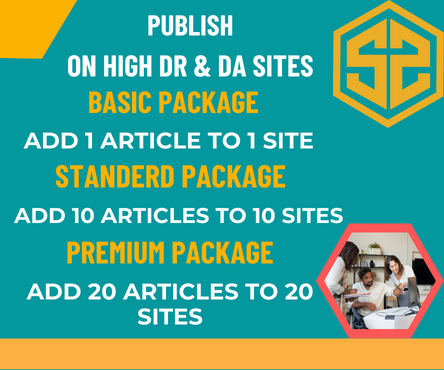In the ever-evolving world of digital marketing, businesses are constantly weighing the merits of Search Engine Optimization (SEO) and Paid Advertising (Paid Ads). Both strategies have their unique strengths, but many businesses still find that organic search offers more long-term benefits compared to paid ads. Here’s why SEO remains the king of digital visibility: For more information please visit seo.my
1. Long-Term Sustainability
- SEO is an investment in long-term results. Once your website ranks organically for targeted keywords, you can continue to attract traffic without having to pay for each click. While it takes time to achieve high rankings, the payoff is worth it in the long run. The effort you put into optimizing your content, building backlinks, and improving site performance will provide continued benefits over time.
- In contrast, Paid Ads require ongoing investment. Once you stop paying for ads, your traffic drops immediately. If you’re looking for sustained visibility without continuous costs, SEO is the way to go.
2. Trust and Credibility
- Organic search results are viewed as more credible and trustworthy by users. People are naturally more inclined to click on results that appear organically because they perceive them as more authentic. According to research, a large percentage of users skip over paid ads and focus on organic search results, which they associate with editorial trust.
- Paid Ads, while effective, don’t carry the same weight. Users are often skeptical about paid listings, assuming they are pushed for commercial reasons rather than quality content. This inherent skepticism makes it harder for ads to establish a deep connection with users.
3. Cost-Effectiveness
- While the initial investment in SEO might be higher due to the time and resources required to develop quality content, optimize your website, and build authority, the cost per acquisition (CPA) tends to drop significantly over time as you start ranking for multiple keywords. Organic traffic is essentially free once you have achieved rankings.
- Paid Ads demand an ongoing budget. With rising competition and increasing ad costs (especially in high-demand industries), the cost-per-click (CPC) can become expensive. For smaller businesses or startups, the continuous need for budget allocation to maintain ad visibility can quickly drain marketing budgets.
4. Higher Click-Through Rates (CTR)
- Organic results consistently outperform paid ads in terms of click-through rate. Research consistently shows that organic search results capture a much higher percentage of clicks compared to paid ads, especially on mobile devices. For instance, organic listings often take up more screen real estate on mobile, which contributes to their higher CTR.
- Paid Ads often appear at the top of the page, but many users tend to ignore these results in favor of organic listings. Over time, this tendency can hurt the performance of paid campaigns, especially when trying to scale for better returns on investment.
5. Better User Experience
- SEO is not just about ranking—it’s about optimizing the user experience. Google’s algorithm rewards sites that are user-friendly, mobile-optimized, and offer quality content. This makes SEO a holistic approach to improving your site, rather than just focusing on gaining clicks.
- Paid Ads don’t directly impact the user experience. While they can lead to immediate traffic, they don’t necessarily provide users with an optimized browsing experience or lead to repeat visitors. If the landing page doesn’t meet expectations, users will bounce, negatively impacting overall conversion rates.
6. Brand Authority and Recognition
- Ranking for relevant search terms builds brand authority over time. As your website starts appearing at the top of search engine results pages (SERPs) for valuable keywords, users begin to recognize your brand as a leader in your industry. This trust and authority often translate into higher conversion rates and customer loyalty.
- Paid Ads may get you quick visibility, but they do not inherently build the same level of brand authority. Visitors may click on your ad, but without organic content that resonates with them, they are less likely to remember or trust your brand.
7. SEO Supports Other Channels
- A well-executed SEO strategy provides a foundation for other marketing efforts. Content that ranks well organically can be repurposed in email marketing, social media campaigns, and other digital strategies. Additionally, the insights gained from SEO can inform decisions for paid campaigns and social media strategies.
- Paid Ads, on the other hand, are isolated to their channel. They don’t necessarily provide value outside of the immediate clicks and impressions they generate.
8. Competitive Advantage
- SEO offers a significant competitive edge, especially for niche markets. By outranking your competitors on Google, you can dominate organic search results for your targeted keywords, driving traffic and business ahead of your competition. Additionally, SEO focuses on creating evergreen content that provides lasting value.
- Paid Ads offer an immediate boost, but they don’t create a lasting competitive advantage. Once you stop paying for ads, you lose your visibility, and your competitors can easily outperform you by increasing their own ad budgets.
Conclusion: Organic Search Is Still King
While Paid Ads can be effective for short-term gains and targeted campaigns, SEO remains the cornerstone of sustainable, cost-effective digital marketing. It not only improves visibility, but it builds brand trust, generates ongoing traffic, and provides a competitive edge that paid ads simply can’t replicate. Businesses that invest in SEO position themselves for long-term success, benefiting from an ongoing flow of organic traffic and higher returns on investment.
If you’re looking for lasting digital growth and brand recognition, organic search should remain at the forefront of your marketing strategy.

